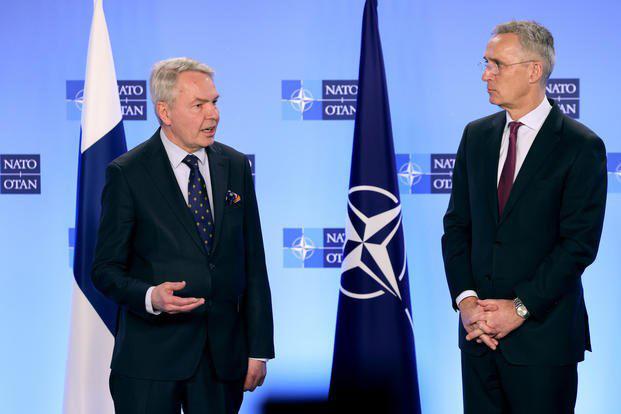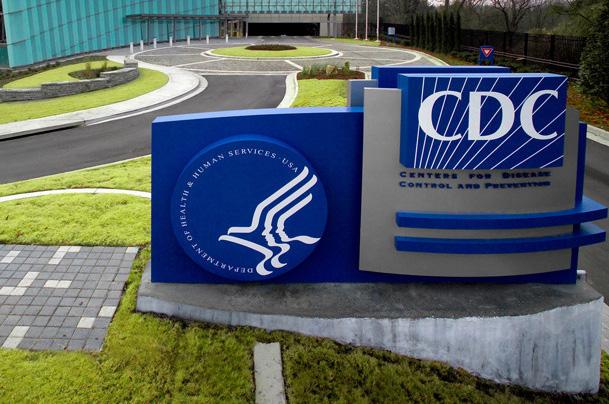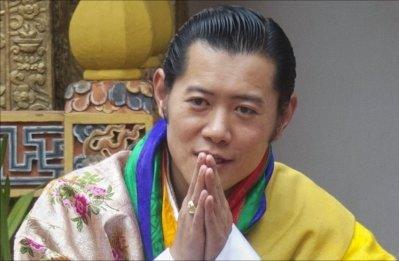
8 minute read
WORLD THIS WEEK
In collaboration with National Institute for Advanced Studies, Bengaluru Authored by Harini Madhusudan, Rashmi Ramesh, Akriti Sharma, Ankit Singh, Padmashree Anandhan, Anu Maria Joseph, Femy Francis and Avishka Ashok
Advertisement
France and China: The Macron-Xi meeting
What happened?
On 5 April, French President Emmanuel Macron, along with European Commission President Ursula von der Leyen, arrived in China for a three days visit to meet with President Xi Jinping. The visit was aimed at garnering peace amid growing tensions. Macron told President Xi during the visit: "I know I can count on you to bring Russia back to reason and everybody to the negotiation table." He also said: "We do not simply want an end to the conflict, but respect for Ukrainian sovereignty and territorial integrity, which is the only condition for lasting peace." Whereas Xi Jinping said France and China "have the ability and responsibility to transcend differences and constraints" and that "China is willing to call on the international community, along with France, to maintain rationality and restraint, and avoid taking actions that will further escalate the crisis or make it out of control," ChinaFrance bilateral trade has grown in the past few years and amid new tensions, France hopes to continue the development of "balanced and mutually beneficial" economic and technology cooperation with China. What does it mean?
First, China is unlikely to side with the European cause for Ukraine. Macron's visit is less likely to change China's stance.
Second, China is the only country with credible access and influence on Russia. Beijing has urged to refrain from using nuclear weapons and to opt for a peace plan. As Russia remains isolated and shunned by the world, Beijing is the only gateway to reach Moscow. Third, China's economic advantages cannot be ignored. China is a big market and vital for France's trade development, and therefore Europe wants to reignite economic relationships benefiting both. While talking about the Ukraine issue, the meeting also focused on mending their bilateral ties with China, de-stressing the hostilities towards Chinese trade and development, which was furthered in the wake of the Russia-Ukraine war.
Taiwan: President Tsai meets with US Speaker, despite the Chinese threats McCarthy
What happened?
On 5 April, the US Speaker of the House of Representatives, Kevin McCarthy, met with the Taiwanese President Tsai Ingwen in South California. Tsai said: "The unwavering support reassures the people of Taiwan that we are not isolated, we are not alone. To preserve peace, we must be strong." The meeting is part of Tsai's 10-day visit to Central America.
Before the meeting, China's Ministry of Foreign Affairs issued multiple warnings urging the US to cancel the meeting and threatened to take retaliatory measures. On 6 April, the Foreign Ministry accused Tsai and McCarthy of promoting the notion of Taiwanese Independence. The statement read: "In response to the seriously wrong acts of collusion between the United States and Taiwan, China will take resolute and effective measures to defend national sovereignty and territorial integrity."
On the same day, China's aircraft carrier Shandong conducted a drill 200 nautical miles from Taiwan's East Coast. Before the meeting, other Chinese navy vessels also passed through the Bashi Channel and entered the Pacific. China also sent a largescale patrol and rescue vessel for a three-day joint patrol and inspection operation in the central and northern Taiwan Strait.
What does it mean?
First, looking beyond relations with the US. Tsai's trip to Central America and the US is seen as an attempt to shore up and maintain relations with its remaining allies in light of Honduras' decision to sever ties. For the Taiwanese administration, this is a crucial moment to broad base its support for itself against China. The meeting with McCarthy also signifies the US support and defiance against China.
However, the change in venue for the meeting is also seen as the US attempt to pacify China by not holding the political meet-up in Taipei or the US capital city. Even though the US Speaker and other lawmakers participate in meetings with the Taiwanese administration, the country does not recognize Taiwan as a sovereign country. However, the US deems it necessary to display its defiance towards China by continuing its engagements with Taiwan.
Lastly, China's Taiwan Conundrum. China is expected to react aggressively in the Taiwan Strait as the increase in political conferences makes the CPC wary of promoting the idea of two separate Chinese sovereign territories. Despite its stringent requirement to adhere to the one-China principle to pursue relations with the PRC, foreign delegates meeting the Taiwanese executives threatens its standing as the People's Republic of China. However, the military drills are as far as China can go to establish its discontent with the meetings.
Also in News
China: CDC urges WHO to follow scientific impartiality for Covid origin tracing
On 8 April, the Centre for Disease Control and Prevention (CDC) urged the World Health Organisation to follow scientific impartiality when tracing the origins of Covid-19. They reiterated to refrain from politicizing the source of the virus and that it should not be used as a tool. CDC director Shen Hongbing said: "Some forces and figures who instigated and participated in politicizing the origin-tracing issue and attempting to smear China should not think that the eyes of the scientific community around the world will be fooled by their clumsy manipulation."

Myanmar: Christian pastor detained over terrorism and illegal assembly charges
On 7 April, the Junta detained a high-profile Christian pastor for six years. He was charged with terrorism and illegal assembly. Since the military coup, they have detained those considered threats to the regime. Pastor Hkalam Samson, over the years, has expressed outrage against the religious persecution. He faced charges for three years of terrorism. The Assistance Association for Political Prisoners estimated that 20,000 people had been arrested against political charges since the coup.
India: King of Bhutan visits New Delhi

On 4 April, the King of Bhutan, Jigme Khesar Namgyel Wangchuck, met Prime Minister of India Narendra Modi as a part of a two-day visit to India. Both leaders discussed developmental reforms of Bhutan, rail connectivity, shared national interests, and investments.
Minister of External Affairs, S Jaishankar tweeted: "Honoured to welcome His Majesty the King of Bhutan, Jigme Khesar Namgyel Wangchuck, on his arrival in India. His visit will further strengthen the close and unique India-Bhutan partnership." Foreign Secretary Vinay Kwatra said: "India and Bhutan remain in close touch and close coordination relating to our shared national interests, including security interests."
Iran and Saudi Arabia: Iran's new ambassador to UAE; Foreign Ministers hold talks in Beijing
On 4 April, Iran appointed Reza Ameri as the new ambassador to the UAE after seven years. UAE had downgraded its relationship after Saudi Arabia's downfall of diplomatic relations with Tehran. On 6 April, Prince Faisal bin Farhan Al Saud and Hossein Amirabdollahain, the foreign ministers of Saudi Arabia and Iran, respectively, met in Beijing for the first formal talks since China brokered an agreement. The joint statement spelt that the "technical teams will continue coordination to examine the ways of expanding cooperation including resumption of flights and bilateral visits… and granting of visas." Chinese foreign ministry spokesperson Mao Ning reiterated China's support to improve relations between the regional rivals and called on the international community to help resolve differences in the Middle East.
Ukraine: UNHRC resolution demands information on missing children
On 04 April, the UNHRC issued a resolution asking for access the information on the missing children and civilians who were reported to be transferred into the Russian-occupied territory. In the resolution, Russia was demanded to: "cease the unlawful forced transfer and deportation of civilians and other protected persons within Ukraine or to the Russian Federation." Apart from this, the UNHRC voted on extending the investigation of war crimes committed by Russia in Ukraine.
Europe: NATO declares the membership of Finland

On 04 April, NATO announced the joining of Finland as its 31st member. Finland and Sweden applied for NATO membership in May 2022, stepping out from the military non-alignment stance. Upon membership, the Finnish flag will be raised at NATO headquarters in Brussels. According to NATO Secretary General Jens Stoltenberg, the move assures security in Finland, Nordic and overall, NATO. Russian Deputy Foreign Minister Alexander Grushko said in response to Finland's accession that Moscow would strengthen its military capacity.
The US: Biden cautions safe adaptation of AI-related technologies

On 4 April, US President Joe Biden, at the start of a meeting with science and technology advisers, said: "Tech companies have a responsibility, in my view, to make sure their products are safe before making them public." There is a growing debate in the US over the risks of AI to mental health risks to individuals without attending to safeguards. Last month, several tech leaders, including Tesla founder Elon Musk and Apple co-founder Steve Wozniak called for a pause on the rollout of AI.
About the Authors Harini Madhusudan, Rashmi Ramesh, Akriti Sharma and Ankit Singh are PhD scholars in the School of Conflict and Security Studies at the National Institute of Advanced Studies. Padmashree Anandhan, Anu Maria Joseph, and Femy Francis are Research Associates at NIAS. Avishka Ashok is an independent scholar from Mumbai.
The report has been modified due to space considerations.










